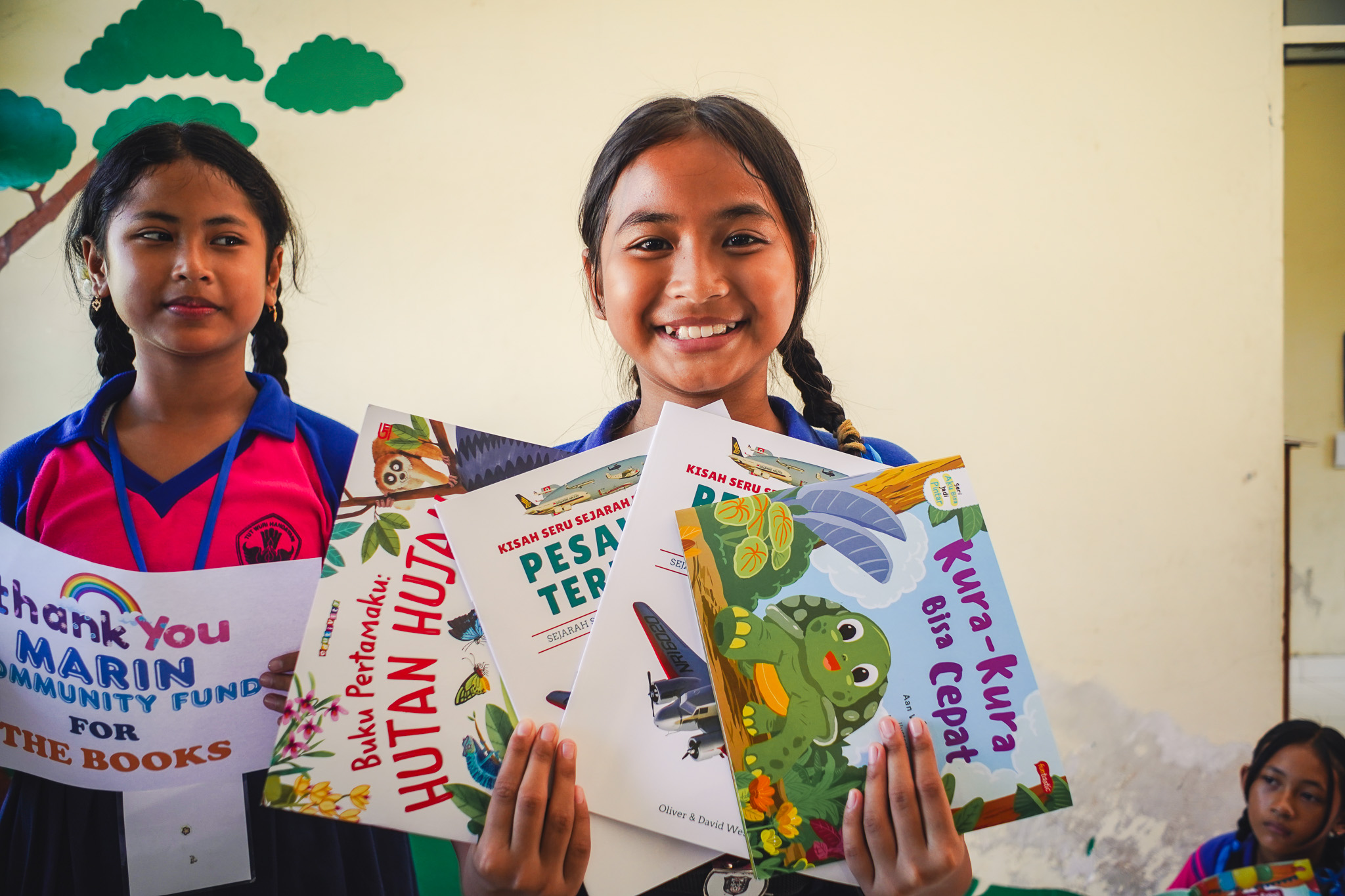15th December 2016.
After visiting 48 schools all over Bali and bringing our workshops to 5,343 students, our 2016 Sex Education Workshops are over, but there’s more to come.
 It’s been a long journey in 2016. Our plans to visit 48 schools were our most ambitious ever. It meant intricate planning, hard work from staff and facilitators
It’s been a long journey in 2016. Our plans to visit 48 schools were our most ambitious ever. It meant intricate planning, hard work from staff and facilitators
Why run workshops?
Over the last 4 years, Bali Children’s Project have been running a successful program in educating Bali’s teenagers in sex, drugs and abuse issues.
 Many youngsters grow up with inadequate knowledge of issues surrounding sex, drugs and abuse. So it’s not surprising to see rising levels of associated issues.
Many youngsters grow up with inadequate knowledge of issues surrounding sex, drugs and abuse. So it’s not surprising to see rising levels of associated issues.
In the Indonesian Government’s latest study of the status of HIV/AIDS, the total number of confirmed HIV/AIDS in Bali as of March 2016 is 18,673 [1].
In April 2013, estimated cases of HIV/AIDS were 7,400 [2]. By December 2014 this figure  has increased to 10,371. Officials estimate the real figure could be up to 26,000. [3]
has increased to 10,371. Officials estimate the real figure could be up to 26,000. [3]
It can be assumed that there are many more cases that have not been tested or diagnosed.
Working Together to Educate
Sex education in Bali is still developing, but does not make up part of formal curriculum. Thankfully, schools and officials welcome Bali Children’s Project workshops.
 Working with schools, teachers, local government and health officials, the workshops are providing essential, potentially life saving education.
Working with schools, teachers, local government and health officials, the workshops are providing essential, potentially life saving education.
The Bali Children’s Project team, led by our own Opy Sulaeman includes facilitators who help run the sessions and special speakers from government and health regencies.
The workshops has been funded over the last few years by supporters The Mel Wolf  Foundation. Three Monkeys ‘Food for Thought’ Program also helps to fund this work.
Foundation. Three Monkeys ‘Food for Thought’ Program also helps to fund this work.
Bali Children’s Project thanks The Mel Wolf Foundation and Three Monkeys for their support of this life saving project. In 2017, we will be seeking additional funding to grow the program further.
Which Schools need support?
In reality, most schools need assistance in  providing sex education.
providing sex education.
Most schools have their own ‘KSPAN’ (a HIV/AIDS awareness club), but with total students between 1,000 and 1,500 in most high schools, KSPAN clubs often only reach a handful of students.
Headmasters and teachers welcome the Bali Children’s Project team, and even join special teacher workshops to help them develop their teaching abilities too.
 The workshops are able to reach between 120 and 200 students per day in each school.
The workshops are able to reach between 120 and 200 students per day in each school.
Year 2013 2014 2015 2016
Workshops 14 29 40 48
Students 1,045 1,545 2,607 5,343
 Delivering the workshops
Delivering the workshops
The workshops have been carefully designed by Opy and the Bali Children’s Project Team to provide maximum effectiveness.
Lasting 3 hours per workshops, the team runs two workshops each day in any one school.
The structure includes opening speeches from health officials, teachers and local government, followed by fun ‘brain training’. A mix of videos,  group work and class discussions engage students in learning about issues including sexual disease transmission, drug usage and reproduction.
group work and class discussions engage students in learning about issues including sexual disease transmission, drug usage and reproduction.
Condom simulations get huge laughs but also give a serious insight in how to effectively use them. First hand stories are also given from our friends who tell students their experiences living with HIV / AIDS.
Impact
 Our post and pre multiple choice test are a great indicator of our impact. The pre tests show that students have a distinct lack of knowledge in many similar areas.
Our post and pre multiple choice test are a great indicator of our impact. The pre tests show that students have a distinct lack of knowledge in many similar areas.
Student’s on average posted a 25% – 31% increase in knowledge, across each area of Bali. These results show how teenagers are able to take in potentially life saving information.
It is a great testament to how these workshops are truly needed to increase knowledge.

Although our 2016 workshops have now ended, the project still has a much bigger future. Bali Children’s Project will be aiming to directly reach 12,350 students, teachers and community members in 2017 – over double the amount reached in 2016.
Average pre test results across all participants: 55%
Average post test results across all participants: 82%
Future Workshops
We know first-hand how important this project is for educating teenagers in sex and health.
New elements in 2017’s program will include an increased emphasis on developing HIV/AIDS clubs within schools.
Bali Children’s Project are still seeking funds to purchase HIV / AIDS reference booklets to be gifted to students in 2017. The booklet printing costs are 5,000 IDR (approx. 0.38 USD) per booklet and we are searching for funds to purchase a total of 10,000 booklets.
Please get in touch if you are able to support this program.
References
[1] Laporan Situasi Perkembangan HIV & AIDS Di Indonesia Jan-Maret, Dr Mohamed Subuh, Direktur Jenderal P2P March 2016.
[2] Bali sees 100 new HIV/AIDS Cases Every Month, The Jakarta Post, 7th May, 2013 (http://www.thebalidaily.com/2013-05-07/bali-sees-100-new-hivaids-cases-every-month.html)
[3] Bali Peringkat ke Lima, Dengan 26.000 Pengidap HIV/AIDS, 10th December, 2014 (http://bali.tribunnews.com/2014/12/10/bali-peringkat-ke-lima-dengan-26000-pengidap-hivaids)





